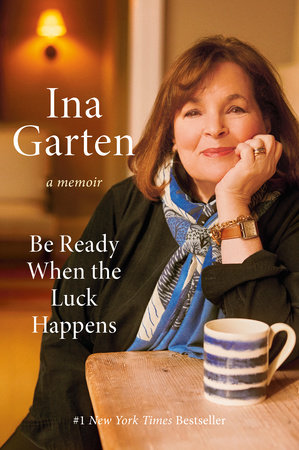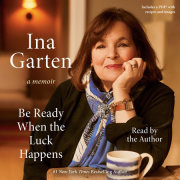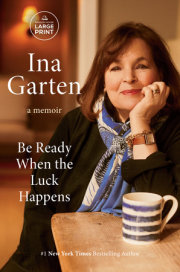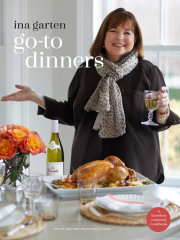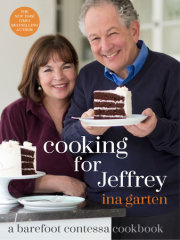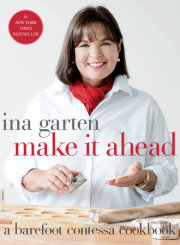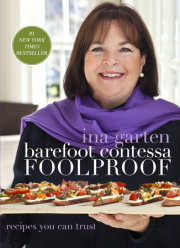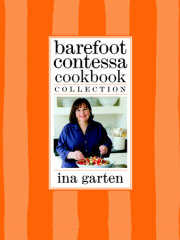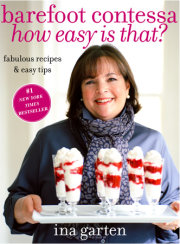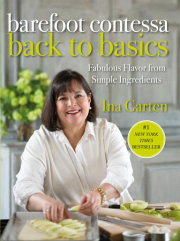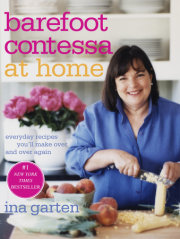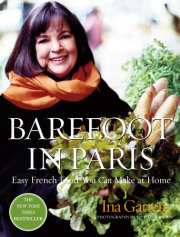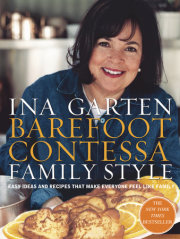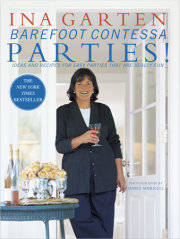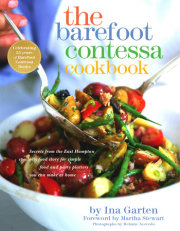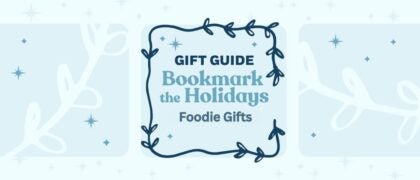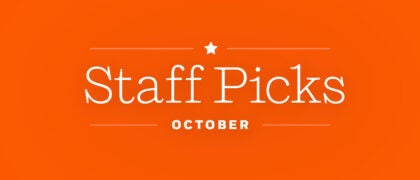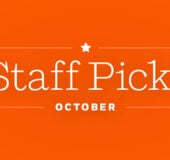Over the Wall “There has to be something more fun than this,” I said to myself, probably for the millionth time, as I sat at my desk drafting nuclear energy policy at the White House. I should have been thinking about enriched uranium, but more often than not, I was looking for distractions. I was most likely planning a weekend dinner party and wondering which ingredient would make the flavor of my chocolate cake POP (it’s coffee, by the way).
My ongoing frustration was that nothing ever happened in government, and even if it did, it took a really long time. Working in the Office of Management and Budget was exciting in the beginning because the issue papers I worked on went directly to the president—first Ford, then Carter. But after four years of shuffling what seemed like very important papers and pulling numerous all-nighters, I realized that despite my working on multibillion-dollar federal budgets, nothing ever seemed to get done. And when it did get done, somehow the next year, it got undone.
The only good thing about having a low threshold for boredom is that I’ve always been willing to take crazy risks just to get out of that miserable state. In my bureaucratic job, I was just part of a larger process, but I wanted to be the process—to do my own thing, either in real estate or in the food business, and, for better or for worse, to make my own decisions and mistakes, risking my own money. I also need immediate feedback, and there was nothing immediate about government work. The issues I was working on involved $50 billion budgets and $25 billion construction projects; I knew I’d be so much happier if they involved only $25, but my $25. I distinctly remember thinking, If I were asked to be the head of OMB, would I want it? And if not, what was I even working toward? I also knew that my success there would depend on a man choosing me to be the head of the organization, and in 1978, that would never happen. I needed to find an alternate track where my success would be measured by my own business skill and nobody could stand in my way.
I didn’t whine—no one wants to hear someone complain about working in the White House!—but I was withering a little more each day. Jeffrey, who knew all too well how unhappy I was, encouraged me to find a passion and follow it. “Pick something you love to do,” he urged. “If you love it, you’ll be really good at it. And don’t worry about whether you make money. Just do it!”
I was sitting in my office, exhausted, and it was only ten a.m. I had the whole day in front of me, so I decided to catch up on
The New York Times instead of working. There it was—in the Sunday, April 2, 1978, Business Opportunities section, where they advertised everything from dry cleaners in the Bronx to a coffee shop with an apartment upstairs, or the hottest new food fad in the seventies: a frozen yogurt store (though it was hard to predict if frozen yogurt had a future).
I had never even seen that section of the paper before. As I studied the tiny print, I spotted an ad for a specialty food store called Barefoot Contessa, for sale in a place I’d never been: Westhampton Beach, New York—all the way at the end of Long Island. The ads were written in a shorthand that was difficult to decipher, and the word opportunity seemed like quite an overstatement. To this day, it’s hard for me to imagine why this ad spoke to me, but I’m so glad it did, because it changed the entire trajectory of my life. This was the ad:
Honestly, it sounded like a prediction you might find in a fortune cookie, especially the “gross over six figures” part. And cheese shoppe? Who would answer that ad?
That night, I went home and told Jeffrey that I really needed a new profession, and that’s when he reminded me that I should think about doing what I love. “Funny you should mention it! I just saw an ad for a specialty food store for sale in
The New York Times.”
“Let’s go see it!” Jeffrey said cheerfully. Looking back, I imagine that he was probably just humoring me. We lived in Washington, DC, and Jeffrey had an important job writing issue papers and speeches for the secretary of state. How in the world could I work in Westhampton Beach? But Jeffrey always had the most positive attitude—If this is what you want to do, we’ll work it out. We got in the car the very next weekend and drove to Westhampton to see the store and meet the owner, Diana Stratta.
On the way, I reminded myself that there was no reason on earth why this was a good idea. Yes, I had taught myself how to cook and I loved being in the kitchen, but I’d never worked a day in the food business. In fact, I’d never hired an employee, I’d never even set foot in the Hamptons, and this certainly wasn’t its most welcoming time of year. Signs of spring were everywhere in Washington, where the air was warm and the cherry blossoms were a week away from their stunning peak moment. But Westhampton in early April was cold and cloudy, a sleepy summer resort town reluctantly waking up from its long winter nap. By the time we parked in front of Barefoot Contessa, the place we’d traveled more than five hours to see, I’d decided that it was a crazy impulse and predicted we’d take a fast look, then turn around and drive home.
The shop, a white clapboard building on a corner in the center of the village’s Main Street, was small—only four hundred square feet. It was so small that the stove didn’t fit in the tiny kitchen in the back and was instead right there in the store. There was one employee who was taking care of absolutely no customers (in fact, there seemed to be no one in the whole village), but she was baking big chocolate chip cookies. Instantly, the scent triggered a rush of good feelings, like endorphins on steroids, and my first thought was, I need to be here! I didn’t want to write papers about enriched uranium; I wanted to bake cookies, not just because I liked them (and I do!), but because I saw a completely different life from the one I was living. The food business, this food business, would give me the freedom and creative outlet I craved. You bake cookies, you sell cookies, and if the cookie doesn’t sell, you make something else that customers will love and that WILL sell. It’s a business problem to solve, and it involved chocolate chip cookies! How great is that?
Standing in this adorable little place named after an Ava Gardner movie (it’s about being elegant and earthy), surrounded by beautiful baked goods, gorgeous prepared salads, and ripe exotic cheeses, I experienced a true “ruby slippers” moment. I felt as if I had clicked my heels and finally come home. I enjoyed everything about cooking, from planning menus to shopping for ingredients, from following a recipe in the most scientific way to making something up just for fun. Most of all, I loved serving the delicious results to Jeffrey and my appreciative friends. It was my favorite escape from my intellectual but totally uncreative job. What if the thing I love to do for fun could actually be my work? I thought. I kept hearing Jeffrey say, “If you love it, you’ll be really good at it.”
We spent the night at a local hotel that had the ambiance of an insane asylum. The room was white, the bed was white, there was not a single glint of metal or sharp object in sight—the perfect setting for two lunatics who were discussing a move that was certifiably crazy.
I’d like to say that I bought Barefoot Contessa on the spot and boldly stepped into a brand-new life, but it didn’t happen quite that way. Remember, I was only thirty and still a little nervous about committing to a life-changing decision as important as this one. Diana was asking $25,000 for the business, and Jeffrey and I discussed offering her $20,000, figuring it would give me time to think about it while we negotiated the price.
But the universe had other plans for me, and they were big. On Monday morning, back from Westhampton Beach, I was sitting at my desk, working on some nuclear energy budget and sinking into my daily stupor, when the phone rang. It was Diana, who said simply, “Thank you very much. I accept your offer.”
I remember sitting there stunned, thinking, Oh shit! I just bought a specialty food store!
Copyright © 2024 by Ina Garten. All rights reserved. No part of this excerpt may be reproduced or reprinted without permission in writing from the publisher.





